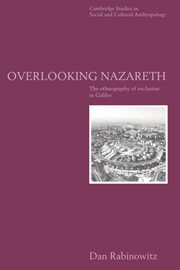Book contents
- Frontmatter
- Contents
- List of maps
- List of tables
- Preface
- Part 1 Bigoted Liberals
- Part 2 Resistance?
- 7 Hospitality and the engendering of space
- 8 Risk, rationality and trust
- 9 In search of genuine representation: the independent list
- 10 Conclusion
- Notes
- References
- Index
- Cambridge Studies in Social and Cultural Anthropolgy
7 - Hospitality and the engendering of space
Published online by Cambridge University Press: 05 October 2010
- Frontmatter
- Contents
- List of maps
- List of tables
- Preface
- Part 1 Bigoted Liberals
- Part 2 Resistance?
- 7 Hospitality and the engendering of space
- 8 Risk, rationality and trust
- 9 In search of genuine representation: the independent list
- 10 Conclusion
- Notes
- References
- Index
- Cambridge Studies in Social and Cultural Anthropolgy
Summary
Hospitable voyagers
30 January 1989. Having spent the morning interviewing in the southern part of town, I head towards the stop near Dado shopping centre, to await the bus home. Rajeba is at the stop, beaming as she sees me approaching. In her midforties, she is probably only a dozen years older than me. Yet when I see her I feel as if she is of another, older generation. It is a sense I often have regarding Palestinian women: regardless of biological age or appearance, they seem older and more senior. As women and as Palestinians, they are marginalized twice over. The difficulties and humiliations packed into a day in their lives, I sometimes think, must be equivalent to strife others experience in weeks or months. They see a great deal and age rapidly.
Rajeba's children, some of whom I met, are in their early twenties. She asks about my one-year-old. I tell her she is fine. It crosses my mind that our lives, including the luxury of not becoming parents until our thirties, are a sheltered, spoilt affair.
Rajeba inquires which bus I am awaiting, and where I hope to go. ‘Oh yes, the number 5’, she says knowingly. 7 am waiting for it too. It should be here any moment now. Ten minutes after the hour. You‘ll be home in no time.’
I detect a tendency on Rajeba's part to assume responsibility for my journey. My suspicions strengthen as we mount the bus. First I notice how she actively protects me from the others in the queue, gently elbowing my way in front of her.
- Type
- Chapter
- Information
- Overlooking NazarethThe Ethnography of Exclusion in Galilee, pp. 111 - 118Publisher: Cambridge University PressPrint publication year: 1997
- 1
- Cited by



